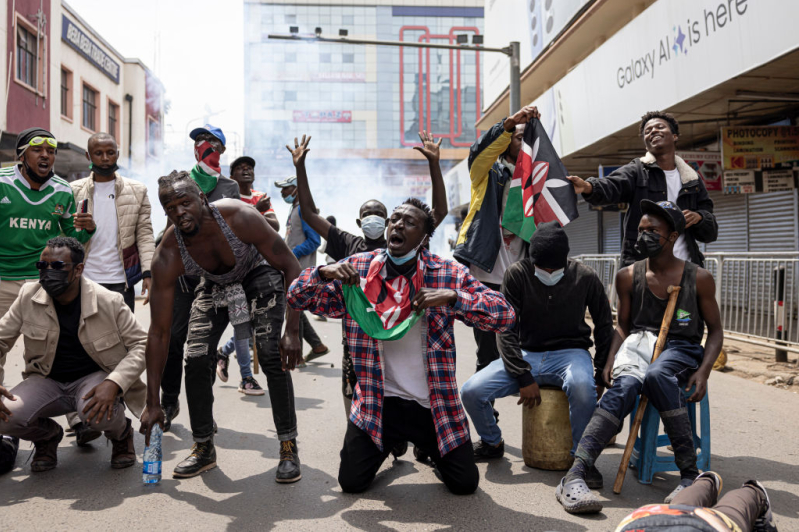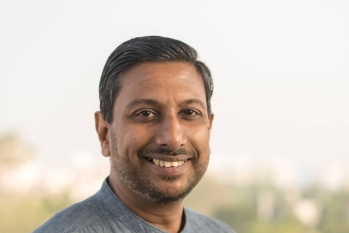
When mass demonstrations hit several cities and towns in Kenya in June 2024 over tax proposals contained in the Budget policy document, many - including the State and the Church - thought it was a passing cloud. But as it turned out, it has become a defining moment and possibly an inflection point in Kenya's evolving democratic journey.
Dozens of young people were killed, some were abducted while many still carry physical and psychological wounds. The cabinet was dissolved, the legitimacy of parliament was questioned and the close relationship between the Church and politicians was challenged and reset.
In an interview with Christian Daily International, Rev. Kepha Nyandega, the General Secretary of the Evangelical Alliance of Kenya (EAK), reflected on the events of June 2024 and the impact they continue to have.
He said the June 25th protest was "a climax" and "a flash point" of the underlying issues such as the high cost of living and unemployment, which have preceded the current administration. Additional taxes on items such as bread and sanitary towels, and new tax measures targeting content creators on social media and the internet particularly agitated young people, many of whom are members of evangelical churches.
"So when they (the youth) went to the streets, the government first ignored them. When it became serious on June 25th, the government realized that it was no joke," recounted Rev. Nyandega, who revealed that the Alliance and several other church associations had expressed their reservations with some clauses in the proposed budget.
"The EAK analyzed the Finance Bill, raised objections, and presented them to the finance committee. We even reached out to the statehouse seeking for an audience, which they didn't grant," said Nyandega, adding that EAK has traditionally adopted a more diplomatic and advocacy approach to negotiate with the State.
A significant aftermath of the June 2024 protests is the re-calibration of the relationship between the Church and the state, specifically the leaders representing both organs. While politicians have historically been allowed to address congregants during church services and donate publicly towards church projects, a sustained and direct attack on churches and clergy that have hosted political leaders has largely resulted in a distinction between the Church and the State.
Rev. Nyandega recounts one instance where a bishop hosted the president and money was promised to the church. The youth reportedly went to the church the following Sunday to demand the money's return, leading to confrontation with police.
"Young people are using tactics like publishing leaders' phone numbers on social media to pressure those they deem supportive (of the government), resulting in abusive messages. "It's very, very bad. It's a way they're using now to control, to manage them," said Rev. Nyandega.
Many leaders, particularly those representing the Church as an institution, have now openly rebuked the president and some government policies.
"There is an ongoing debate within the Church regarding whether politicians should be allowed to address congregations during services. The Catholic Church and the Anglican Archbishop have taken strong positions against this. While the EAK has not taken a formal stance, some member churches, like CITAM (Christ is the Answer Ministries), maintain a policy of not giving politicians an audience, regardless of who attends," notes Rev. Nyandega.
A Crisis Leading to Renewal?
Despite the challenges, Rev. Nyandega sees potential for positive change stemming from this crisis. He believes the church is "redeeming its name, its image in the view of the youth." Young people have shown appreciation for leaders who have strongly spoken out against issues like corruption.
This period is prompting churches, including those not traditionally politically active, to become more concerned with social justice.
There is a growing realization that youth ministry needs more serious commitment. The crisis is encouraging some churches to be more open to young people taking leadership roles. They're realizing that the youth demographic "is a force" that can't be ignored any longer.
Churches, added Rev. Nyandega, are also accelerating the adoption of technology for reaching out to youth, a trend also highlighted by the Covid-19 pandemic. Furthermore, churches are becoming more conscious of the importance of children and youth ministry due to the challenge of an aging church demographic compared to Kenya's young average age. The average age in Kenya is 19.8 years, while the average churchgoer is typically between 30 and 40.
This situation is prompting a rethinking of the church's core mission. Efforts are being made to take the discipleship of young people more seriously. The EAK is working to build the capacity of its member churches to minister effectively to young people and is refocusing efforts on youth ministries like the Fellowship of Evangelical Fellowship of Christian Unions (ministering in universities), Scripture Union (primary school), and Kenya Student Christian Fellowship (high school).
Another outcome is increased civic consciousness among the youth, and importantly, the government can no longer afford to ignore their voices.
While there have been some minor tax adjustments, there is a perceived lack of strong government commitment to fighting corruption and wastage, Rev. Nyandega comments. However, there remains a hope that the current situation will lead to more prosecutions of leaders involved in corruption, acting as a deterrent.
The upcoming election in about two and a half years is anticipated to be difficult, he says, but the Church is expected to play a mediating role to reduce tension.






